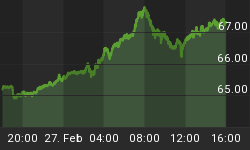Short-form video app sensation TikTok is being set up to be the central feature in Washington’s economic warfare with Beijgin, but it won’t be an easy sell like the Cold War was: Data shows that one out of every three Americans is already addicted to the app. So, banning TikTok becomes a rather toxic pre-election endeavor for the Trump Administration.
Last month, Trump threatened to ban the app from operating in the US citing national security concerns. However, he was reportedly urged by his advisors not to go down that path due to the app’s popularity. But advisors come and go ...
Now, Microsoft has confirmed that it is in talks to buy TikTok's service in a deal that could be worth up to $30 billion, Trump revealed a new plan that would save face for everyone.
Trump set September 15 as the deadline for TikTok to find a US buyer, failing which he said he would shut down the app in the country.
Trump also said any deal would have to include a "substantial amount of money" coming to the US Treasury, but failed to offer up any details as to what that meant, exactly.
"But if you buy [TikTok], the United States, which is making it possible to buy, because without us they can't do anything, should be compensated. Properly compensated with a very big payment. So that money would go into the Treasury of the United States,” Trump told "Fox & Friends.
For now, it’s unclear how that would work, or if it’s even legal. Even Trump’s threat to ban the app is on shaky ground, since the federal authority has never been used before with a consumer app. This is all brand new territory.
Indeed, TikTok’s numbers are staggering.
Launched only in 2017, it is currently the number one app downloaded in the iOS store, and it’s estimated that in the first quarter of 2020, more than 315 million downloads occurred between Google Play and Apple’s iOS store in the US alone.
Globally, the app has been downloaded 2 billion times.
Some 60% of its US users are aged between 16 and 24.
The value of ByteDance, the parent company of TikTok, is said to have surpassed $100 billion in May. It more than doubled its revenue from $7.4 billion in 2018 to $17 billion in 2019. The company made a net profit of $3 billion last year, Bloomberg reported.
Security concerns surrounding TikTok are not new.
Last year, the US Committee on Foreign Investment (CFIUS) launched a national security investigation into TikTok after lawmakers penned a letter to a US intelligence official demanding a security assessment.
Several US government agencies, including nearly all branches of the military, have barred employees from downloading or using the app.
Related: Indonesia Moves To Bolster Mining Sector
In the latest move, a U.S. Senate Committee voted two weeks ago to ban federal employees from using TikTok on government-issued devices.
Also, several lawmakers from both political parties have described TikTok as "a potential counterintelligence threat we cannot ignore”.
The lawmakers expressed concern that China's 2017 internet law forced companies in the country to cooperate with the Communist Party. They also questioned the company’s data collection practices, suggesting that the Chinese government has a certain amount of influence over what content Americans see on the app.
Besides selling TikTok to a US buyer, ByteDance has implemented several measures to further protect itself from becoming the bullseye in a US-China battle. For starters, it is setting up U.S. headquarters--like in California or New York, where it already has offices.
In mid-March, the company said it would stop using China-based moderators to monitor overseas content.
That same month, ByteDance said it would open a new facility in California, called the “transparency center”, which would allow outside observers to view how teams at the company moderate content.
Also, in May installed Kevin Mayer, Disney’s head of streaming, as its new CEO hoping for a reputational boost.
By Michael Kern for Safehaven.com
More Top Reads From Safehaven.com:
















